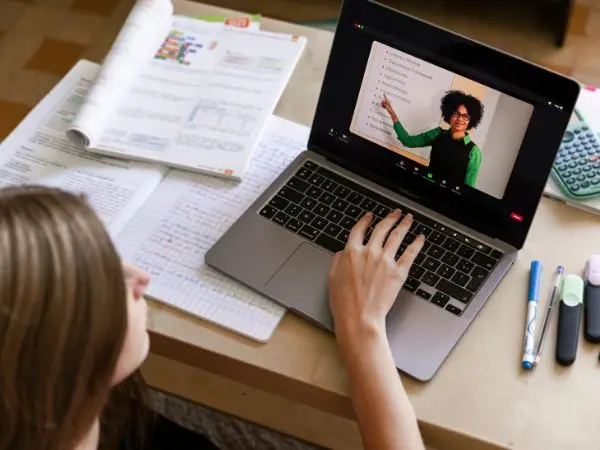Discover the secrets to effective, stress-free studying with these 10 tips for more organised study.
Studying can be stressful, but it doesn’t have to be. You want to get the best grades in your school classes, and you’re ready to put in the hard work and start revising, but you have 10 pages of ‘to dos’ and have no idea where to begin. Well don’t worry! A critical part of becoming more organized is learning how to be more organized. This is a life skill, and we’re not all born with the knowledge of how to stay organized effectively, and so Astrolabio are here to help.
Whether you’re preparing for final exams, struggling to keep track with your classes homework deadlines and tasks, or planning a language study experience overseas, managing your study time effectively is key to success. Don’t forget, when it doesn’t feel stressful, it can also be fun!
In this guide, we’ll explore ten powerful strategies to transform your approach to studying. It can be hard work, but our tips will help you grow both academically and professionally and will prepare you for future study adventures beyond your home country.
Stay focused, these tips are important!:
Master Your Studies with These 10 Tips
Indice dei contenuti
1. The Pomodoro Technique
Developed by Italian entrepreneur Francesco Cirillo in the 1980s, the Pomodoro Technique is a time management system that has transformed the way students study worldwide. This technique helps you feel productive, work smarter, and stay focused. It’s based on a simple principle: alternating focused study sessions with regular breaks improves your brains ability to concentrate and stay on track!

How It Works
The technique follows three key steps:
- Focus: Study for 25 minutes without distractions, concentrating fully on one topic.
- Short Break: Take a 5-minute pause to rest your mind before the next session.
- Long Break: After four cycles (about two hours of study), take a longer break of 15–30 minutes to recharge.
This method is particularly effective for intense study periods, such as university exams or language proficiency tests. You can even download an app straight onto your computer or phone which allow you to set reminders so you keep on track. Its structured approach helps maintain focus and prevents burnout, making your study sessions more feel more manageable.
2. Create a Study Schedule
A well-structured study schedule will improve your time management skills, reduce stress, and boost your productivity! Not only that, but it helps you ensure your studying is more efficient and organized.

How to Plan Your Week
- Set a date each week—ideally on Sunday evening or Monday morning—to map out your study plan and create a calendar or a to do list for each session. This will help you identify your priorities—no more panicking about essay deadlines the night before or facing the wrath of your teacher if you forget to do your homework! To do lists are also so satisfying as you get to see how much you’ve completed by crossing them off.
- Distribute your sessions and all the tasks (even repeated tasks, such as revising) evenly to avoid last-minute cramming and burnout, keeping in mind any deadlines or classes with homework due.
- Use a planner, calendar, or a digital app to track deadline dates, assignments, and extracurricular activities.
- Tackle challenging subjects when your energy levels are highest (usually early in the morning) and save lighter topics for night time.
3. Creating the Ideal Study Space
Your surroundings have a direct impact on focus and efficiency. If your study space is too messy or chaotic when you start revising for exams or language proficiency tests, it can give your brain too much to process. This inhibits your productivity and efficiency and can actually make studying harder.

Setting Up a Study-Friendly Space
- Choose a dedicated study area for your homework or revising every single day—whether it’s a desk in your room, a quiet corner at home, or your favourite library.
- Keep essential materials within reach (books, notes, stationery, study schedule, to do list, and digital tools) and move your phone away from you to minimise distractions.
- Ensure your room or study space is clean and tidy with good lighting, a comfortable temperature, and minimal background noise to maintain concentration.
4. Using Mind Maps
Mind maps are a powerful way to break down complex information into easy-to-remember visuals, as you see your ideas in a physical, real sense. Mind maps are a critical part of organizing your ideas logically, making studying more effective. This can work for projects, essays, exams, revision! Use it however you see fit.
Creating an Effective Mind Map
- Start with a central topic of your project and create branches for key ideas, linking related concepts.
- Use colours and symbols to categorise and track information, making it easier to recall.
- Add small drawings or icons to reinforce key points—visual cues improve memory retention.
5. Collaborative Studying
Studying in groups or at school can help you stay on track, improve your understanding, boost your motivation, and develop teamwork skills—especially for students preparing for international or study abroad experiences. It’s even better if the fellow students are in your classes, as you can help each other if you come into any problems with the tasks.

Tips for Productive Group Study
- At the beginning, agree on a regular schedule for study time, keeping in mind any deadlines or projects. You can write the date down so you don’t forget, or you can even use a shared calendar with your friends to help you organize everything.
- Share notes, summaries, and resources using apps such as Dropbox or the Notes app on your phone to get different perspectives on the project and keep track of what you’re doing.
- Keep discussions focused by creating to dos and assigning specific topics or problems or deadlines to each session.
6. Managing Study Materials Digitally
A well-organised digital system saves time and keeps study materials easily accessible from any device.

Digital Organisation Tips
- Organise files into structured folders by subject and topic.
- Use clear, consistent file names to find documents quickly.
- Store materials on cloud platforms for easy access, such as Google Drive, ensuring you can study any time and anywhere.
7. Active Revision Techniques
Want to make revision more engaging and effective? Active revision helps reinforce learning and improve retention.
How to Revise Actively
- Explain topics out loud to yourself as if you’re a teacher explaining the tasks to someone else.
- Use real-life examples to make concepts more relatable in a real sense.
- Challenge yourself with quizzes and flashcards on your projects, essays, or exams.
- Record summaries of key points and listen to them while commuting or exercising.
- Track your progress over time to identify areas for improvement, and when you feel confident, you can give this content a big tick to tell yourself it’s all completed.
8. Staying Physically and Mentally Fit
Life is all about balance, and good, holistic health is essential for effective studying. It’s not only about working hard in your classes at school or studying with other students, every single day you should be doing something just for you! Like athletes preparing for competition, students need to maintain both physical and mental well-being.

Simple Ways to Stay Energised
- Take 5-minute active breaks every hour to stretch or walk or step outside for some fresh air and sun.
- Stay hydrated and choose healthy snacks for sustained energy.
- Practise relaxation techniques like deep breathing or meditation in the morning to manage stress.
9. Celebrating Milestones
Never forget that recognising your progress—no matter how big or small—keeps your motivation high and builds your confidence.

How to Stay Motivated
- Write clear, achievable goals each week on your to do list or your calendar. Celebrate when they’re completed!
- Break large tasks into smaller, manageable steps.
- Reward yourself with short breaks, hobbies, or treats after completing a task.
- Share your progress with friends and family or in your classes at school with other students to stay accountable.
10. Making Studying an Adventure
The best learning experiences happen outside your comfort zone! Turn studying into an exciting and interactive process.

How to Bring Studies to Life
- Connect your lessons to real-world experiences.
- Visit museums, exhibitions, or workshops related to your subjects.
- Start a blog or share your learning journey on social media.
- Network with international students and exchange study tips.
Expanding Your Horizons
School and student life can be hard, but you don’t have to make it harder! Effective study organisation isn’t just about creating a good schedule—it’s about personal life growth. These strategies will not only improve your school performance or staying on topic with your tasks, but also help you prepare for exciting new opportunities, whether at home or studying abroad.
In life, everyone learns differently, so alter these methods to suit your own style. Whether you’re studying for your classes at school or gearing up for an international experience, these tips will help you build a structured and rewarding study routine.
Well done, you did a great job!




